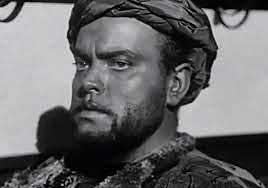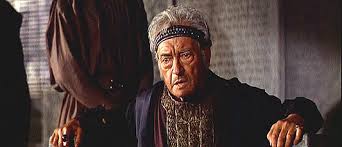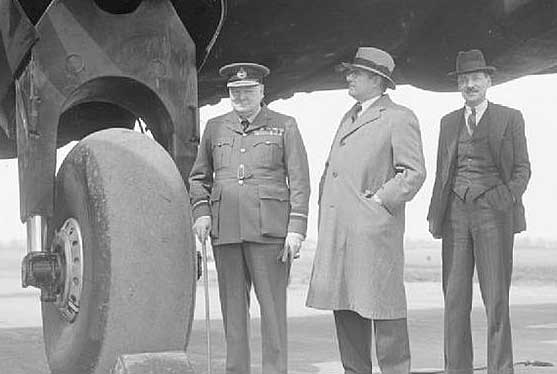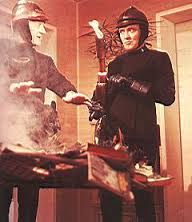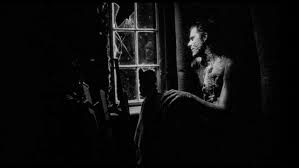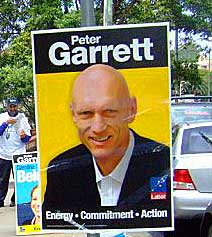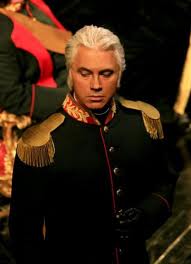The Varnished Culture's Thumbnail Reviews
Regularly added bite-sized reviews about Literature, Art, Music & Film.
Voltaire said the secret of being boring is to say everything.
We do not wish to say everything or see everything; life, though long is too short for that.
We hope you take these little syntheses in the spirit of shared enthusiasm.
Victim

(Dir. Basil Dearden) (1961)
In 1961, in the United Kingdom, and elsewhere, if a man put his pee-pee into another man, it was not only abnormal; it was a criminal offence, punishable by imprisonment. And without knowing much about that, we are confident that such imprisonment was not only qua punishment, but for punishment.
So for film-industry insider Basil Dearden, and various stars, to make this rather didactic thriller constituted an act of courage. Boy Barrett (Peter McEnery) is being blackmailed and desperately wants to protect his object of desire, Neville Farr (Dirk Bogarde, in a superb performance, arch and feisty). Farr wants to get the villains, and discovers that other blackmail victims are as obstructive as the enemy, and that his crusade will probably ruin his prospects as a new silk.
 The confrontation with his wife (a stoic and forsaken Sylvia Sims) as to why the cops want to know about Barrett, is sensational: “You won’t be content until you know, will you. Tiil you ripped it out of me. I stopped seeing him because I wanted him. Do you understand…?” But nothing compares to the shock you feel when Farr asks to speak to Boy Barrett at Fulham Police Station. That moment will stay with you.
The confrontation with his wife (a stoic and forsaken Sylvia Sims) as to why the cops want to know about Barrett, is sensational: “You won’t be content until you know, will you. Tiil you ripped it out of me. I stopped seeing him because I wanted him. Do you understand…?” But nothing compares to the shock you feel when Farr asks to speak to Boy Barrett at Fulham Police Station. That moment will stay with you.
 A gutsy cast is good: Dennis Price (and other victims) and John Barrie as the knowing and irreproachable detective-inspector are stand-outs, as are the gloriously unrepentant and weird villains (Derren Nesbitt and Margaret Diamond). Harold Doe’s lovely bookshop should be preserved in aspic. It is a bit limp all round but then Hilton Edwards pops up, deliciously, as a fraudulent queer. And Nigel Stock as a two-timing cream-puff with roundaphobia reminds us of a few ex-friends.
A gutsy cast is good: Dennis Price (and other victims) and John Barrie as the knowing and irreproachable detective-inspector are stand-outs, as are the gloriously unrepentant and weird villains (Derren Nesbitt and Margaret Diamond). Harold Doe’s lovely bookshop should be preserved in aspic. It is a bit limp all round but then Hilton Edwards pops up, deliciously, as a fraudulent queer. And Nigel Stock as a two-timing cream-puff with roundaphobia reminds us of a few ex-friends.
Bogarde wrote in his memoir, Snakes and Ladders: “It is extraordinary, in this over-permissive age, to believe that this modest film could ever have been considered courageous, daring or dangerous to make. It was, in its time, all three.”
Continue Reading →
Otello

(Verdi) (1887) (Metropolitan Opera, November 2015) (Dir. Bartlett Sher) (Film Dir. Gary Halvarson)
How can you go wrong with Shakespeare, Verdi and a Drinking Song? A great source (though suffering from some tinkering), seamless music with some outstanding features, and tight structure, yet it lacks the charm of, for example, the less synoptically impressive Il Trovatore. And it needs top-notch musical control, lest it blurs into mere noise.
Othello by W.S. is a difficult beast because it is the most subtle hence most delicate of dramatic flowers. Iago is perhaps the most baffling and ingenious villain (who, by the way, cops the Bard’s biggest structural error – he would never have run with such a lumpen device as Desdemona’s handkerchief).
From natural storm to human storm, the opera is a terrific series of bold brushstrokes to suggest, rather than delve into, the play’s examination of jealousy and suggestion. But it is totally hitched to the drama, unconcerned with traditional operatic bells and whistles – it is the Verdi Wagner might have liked most.

“Wouldn’t I be handsomer with some duskiness? And what’s with the mirrors? Is this ‘The Lady From Shanghai’?”
Otello – Aleksandrs Antonenko – great vocal work by this Latvian tenor (on the whole), but since he is Latvian, the Estonian in P can’t resist wielding the needle just a smidge. First, he is white as Edward Scissorhands. Next, when reference is made to “the burning sands of your native land”, you spray your wine over the seat in front. Third, he plays Otello like Ricky Ricardo suspecting Lucy has succumbed to an unwholesome attraction for Bill Holden.
Desdemona – Sonya Yoncheva – sensational. Natural, Organic, Bewildered and real. When she foresees her doom, and is subsequently smothered, you are shocked
Iago – Željko Lucic – something of a Snidely Whiplash villain, unfortunately.
Conductor – Yannick Nézet-Séguin – absolutely superb. The music links very closely to the characters’ psyche in Otello, and the conductor keeps up and enhances the action immaculately.
The sets are ho-hum, frankly. The costumes are based on Venetians and Cypriots in “the late 19th century.” Producer Bart Sher must have been sick the day they taught history at school; otherwise he’d have known that Napoleon rang down the curtain on the Venetian State in 1797.
Racist Alert: We can’t take it seriously. Though Robert Hughes tagged racism as a modern scatter word of abuse, we simply find it funny. How can you take discrimination based on skin colour or physiognomy seriously these days? As Sean Micallef asked the anti-discrimination policewoman: “Should we laugh at racist jokes?” and getting the answer “No”, responded: “What if they are funny?” We just can’t swallow the failure to ‘blackface’ – what’s really wrong with that, if you are playing a great Moorish Soldier?*
One does not have to go black-and-white minstrel, as Norman Gunston did so cringingly. Why not get a dusky man to sing the part? Jessye Norman was not the only great opera star of colour, was she?
Orson was not scared of The Dinge. “If I like the race…?”
[*They got Lucian Msamati to play Othello at Stratford-upon-Avon.] Continue Reading →Life of Herod

(By Josephus) (c. 79-93AD)
A Jewish scholar who fell in with the Romans was well-placed to write an account of the fairly wicked and opportunistic King of Judea (37-4BC). Herod was a survivor in every sense, swinging between supplicant and psycho, and he knew how to pick a winner. Most of the losers, meanwhile, comprised members of his extended family, leading to the saying that it was ‘better to be Herod’s pig than Herod’s son’.
This intriguing work has the nuance and factual matrix absent from the biblical references, suggesting that the Massacre of the Innocents was really an inspired New Testament flourish, albeit consistent with Herod’s public image along the Levant. (Judea did not love Herod, who has had bad PR since his death – e.g. see Claude Rains’ effective performance in The Greatest Story Ever Told – but beware – watching that film is like reading the old and new testaments in one sitting in a crummy hotel room).
Our version of Josephus is the sumptuous Folio edition, translated from the Greek by John Gregory with a concise and illuminating introduction by Martin Goodman. One of the reasons The Varnished Culture’s offices exist in a modest bolt-hole (so small the mice have round shoulders and permanent sore necks) is that we have spent too much money on Folio books – and the rest of our dough, apart from opera tickets and the odd bottle of champers, we simply have wasted.
Continue Reading →
Attlee

(By Kenneth Harris) (1982)
A big comprehensive tome on the bland, modest and decent Labour leader who as a rather supine Prime Minister from 1945-1951, gave the Brits post-war austerity and de-colonization. He seems to have oozed integrity, to the point where he was as clean and dull as an Eagle Scout Master (remember the quip “An empty taxi arrived at 10 Downing Street and Mr Attlee got out”) but he was an invaluable brake on the zealous excesses of Churchill, within that curious and brilliant creature, the wartime coalition.
This is reflected in the golden vignette of January 1945, when Attlee wrote a polite but devastating critique of the P.M.’s cabinet process. Churchill went nuts and had dictated a furious reply when his wife said to him “I admire Mr Attlee for having the courage to say what everyone is thinking.” The great man rescinded his angry response, wrote a mild reply and then said: “Now let us think no more of Hitlee or Attler. Let us go the Movies.”
Attlee was a great 2IC but no leader.
Update: 8 October 2016 – On the 49th anniversary of Clem’s death, and 34 years since the work reviewed above, a new biography appears (by John Bew). Whereas the Harris biography evoked a contrast then between Attlee (a lifelong member of Club Sensible) and Michael Foot, the rumpled red leader of the British Labour Party, Bew’s work will provide an even starker comparison: Clement Attlee (quiet, patriotic, practical, conservative) and….Jeremy Corbyn.
Continue Reading →Silent Running

(Dir. Douglas Trumbull) (1971)
The order comes from exhausted, ravaged Mother Earth, to nuke the space farms, but Bruce Dern (a man born with a contrary face) prefers to treat that order as garbled in transmission. This is the first and best of the Green Space Operas.
Trumbull, the special effects guru (2001, Close Encounters of the Third Kind) goes wild in his directorial debut: the space farms and incidental craft are an art-direction triumph; his droids (Huey, Dewey and Louie) are far more charming than those rusty, effete and annoying Wizard of Oz knock-offs from Star Wars (which P, incidentally, considers a franchise fit only for merchandise-hungry morons and TV dipsos), and the long shot of Bruce at the ‘kitchen window’, washing his precious vegies, is a stunner.
Deric Washburn, Michael Cimino and Stephen Bochco did the script, which is predictable enough but satisfying nonetheless. A must-watch for Space Buffs and especially Those Who Love A Message
Continue Reading →Fahrenheit 451
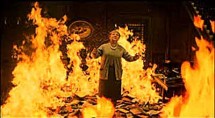
(Dir. François Truffaut) (1966)
Apart from the bone-chilling Mars-Hates-Earth story, “While Earthmen Sleep”, Ray Bradbury (22 Aug 1920 – 5 Jun 2012) – Happy Death Day Ray! – wrote a classic dystopian work, Fahrenheit 451.
In a world where possessing books is illegal, Oskar Werner is a promising up-and-coming fireman whose job is to torch the western canon (451 degrees is the applicable temperature). Cyril Cusack is impressed with how well Oskar winkles out those hidden classics.
Whilst the fire engines belong to a weird mix of Thunderbirds and On the Buses, and the film strikes odd, repetitive, notes, a satisfying sense of paranoia from Ray Bradbury’s book prevails, helped along by Truffaut’s homage-touches of Hitchcock, complete with a Bernard Herrmann score that swings wildly between Vertigo and North by Northwest..
Oh, look! There’s a Don Quixote in the ornamental lamp! A Moon and Sixpence on the bonfire. And so on. After all, all of these books…nothing to say. Just makes people unhappy. It is all rather clinical and the landscape rather artificial, but somehow, it works. When a lady faces the flames in her great rambling house of books, it is a truly great cinematic moment.
Julie Christie plays a Stepford Wife very nicely but then another Julie sets her impressive jaw and takes it on the lam with Oskar, to a world beyond the woods where people are each given a book to memorise and hence keep alive. So, there at what looks like Camp Krusty, they are met by The Journal of Henri Beyle by Stendhal; Plato’s Republic is washing potatoes; a skinny fellow on a walkie-talkie is Alice in Wonderland; Byron’s The Corsair used to be married to the Chief of Police. The Pilgrim’s Progress, chopping wood (how appropriate!), ate his book so they couldn’t burn it; Pipe-smoking identical twins are Pride and Prejudice (volumes one and two); and so on.
It’s a charming idea and, in a world where, increasingly, ideas are incendiary and learning despised, a small light in the Dark. And Oskar becomes which book? You’ll have to read on…
Continue Reading →Eraserhead
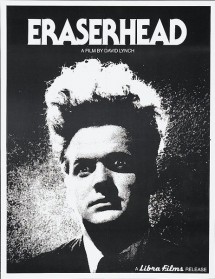
(Dir. David Lynch) (1977)
A hilariously creepy, surreal, slice of family life set in an urban landscape of industrial nightmare. Henry (Jack Nance, a Tim Finn parody) finds his life, such as it is, a gigantic and miserable chore. Every human crossing his path seems straight out of Brother’s Keeper. His prospective parents-in-law belong in the zoo. So do the chickens they serve. Their home, adjacent the railway tunnel, is a jet-black version of the cardboard horror from Targets. Scenes of amateur squalor abound.
A show-stopping singing number (one of P’s preferred funerary songs) is performed by a deformed inamorata. His near catatonic girlfriend takes off when the fruit of their union assumes the form of the thing exiting John Hurt’s chest in Alien. And then baby comes down with some form of Super colic.
Meanwhile a pock-marked and inscrutable chap, reminiscent of Injun Joe, drives a cosmic switch powering it all. A truly dark, visceral and unique piece of film. We never knew they made pencils like that.
[Lynch note: this was the big-haired auteur’s first film, made for about $25,000 reputedly, scraped together over a couple of years of troubled and fretted production. We thought of him after a fellow film-buff referred us to the great site of Hulk Film Crit and particularly his rambling, 11,000-word exegesis (all UPPER CASE) about Lynch’s Mulholland Dr. Hulk thinks it is genius: we are inclined to firmly disagree, but won’t: We don’t want to make Hulk angry. You won’t like him when he’s angry.But The Varnished Culture will take Eraserhead instead.]

Big Blue Sky

(by Peter Garrett) (2015)
A famous singer in a leading Australian rock band, environmental activist and all-round bien pensant, it was Peter Garrett’s stint as Federal Arts Minister that impelled The Varnished Culture’s perusal of his book.
A lot of the time it is a happy memoir – from middle-class childhood in suburban Sydney, with warm milk and bush cricket, trains into the city and boarding school, discovering girls and rock and roll. Garrett’s early account is written with flair and humour. When as a kid he signed up to Australian Record Club, receiving a record in the mail every few months, it “was the only correspondence I ever received”.
His upbringing was not particularly political (father was a milk-and-water Liberal, his mother a casual but staunch Labor supporter) yet leftish leanings formed early, largely off an emotional base. His natural sympathies lay with the less fortunate, and his colleagues in what became Midnight Oil shared a similar world-view. But he was a fairly typical young artist, left but not doctrinaire, political but not overtly party political. And whilst he was by confession a modest, even lax, scholar, he discovered Integrity (acute, like indigestion), in fronting the Oils, giving his all in performance, helping turn it into one of the most uncompromising and authentic rock outfits riding the new wave.
There are good strong chapters on the vagaries of the music industry and when overnight success came, it rode on the back of relentless physical and mental labours, with more grit than glamour. [Incidentally, if you are unfamiliar with their oeuvre, we recommend these songs as an entrée: Don’t Wanna be the One (1981), Power and the Passion (1982), Beds are Burning (1984) and King of the Mountain (1990).] Some of the chapters are a bit pedestrian – the riffs on certain burning issues of the day are too sugary to our taste and somewhat lame – and as an activist it seems he often confused process with outcomes – but Garrett has seen and done interesting things and he has a pretty good memory for details.
Which leads to some intriguing asides. When Garrett was 23 years old, the home he and his mother lived in burnt down. He was injured trying to rescue her from the flames – she perished. The trauma and the undeserved feelings of guilt that must attend a tragedy like that are matters we can only guess at – for having opened chapter 6 explaining the difficulty of dealing with the matter, he essentially squibs it over the course of three paragraphs. A forgivable lapse.
The other lapse is more intriguing. In a chapter on Garrett’s campaign to blow up the pokies in his local electorate, he claims he was given an envelope full of cash from a person presumably wanting him to lay off poker machine ‘reform.’ When he realised the implications, he handed the package back. Yet his book contains an erratum slip styled as a ‘Clarification’, saying that the envelope actually contained a cheque (which he also returned). The incident is presented as something fairly sinister, and hence memorable, so such an error of detail tends to strain credulity.
Entering federal parliament in 2004, he rose rapidly as a celebrity candidate should, and when the Rudd Labor Party took office in 2007, he became Minister for the Environment and the Arts. Some men and women have no background in their ministerial portfolios and yet do well; some step into their ministries as they would their bath, and flounder. Yet he seems to have racked-up some solid work for the environment, dealing with the vested interests, including the green mafia that wrongly assumed he would let no development pass, leading to grumbles that the new Garrett’s every appearance was a sell-out.
It also seems fairly clear that the Pink batts debacle was the fault of Kevin Rudd’s over-egged response to the GFC, Garrett’s department foisted with the implementation of a dopey scheme to install roof insulation here, there and everywhere. Firms grabbed the subsidies and sent four youngsters out to die in stifling crawlspaces, hammering metal staples into live wires. Then Rudd panicked; pulled the pin on the scheme, sending a bunch of start-up businesses to the wall, and hanging Garrett out to dry as well. But at least the author confesses his “bones felt heavy” after these little tragedies.
For many folks in the ‘Show’ (which is what we learn from Garrett that labor insiders call their dysfunctional family of a political party), Mr Rudd was a character to which few adjectives are equal. On this ‘great underminer’, our author is eloquent:
“[M]y judgement was that Rudd was also a threat to national security. So unstable was the experience of government when he was leader, and so utterly ruthless his pursuit of [then P.M. Julia] Gillard at the expense of the party he once led, it was difficult to know which way someone with such a malevolent and punitive personality would jump when the pressure was really on…This kind of megalomaniac could get the country into trouble without a moment’s reflection.”
We started this book ready to pick over Garrett’s bones, particularly for his refusal of funding to reprise the sublime Adelaide Ring, amid the financial crisis when the Commonwealth was splashing dough about like Elton John in Nice. But we have to admit that we not only started liking him whilst reading the book, but respecting him as well, since he seems a man of clear integrity. Of arts funding, a matter on which we have had things to say before, he justly says:
“I believe the role of government is to lay the groundwork for the arts to flourish, not to pick winners or support favourites. I also don’t believe that simply calling yourself an artist means you can automatically expect taxpayer support*.” Not the most elegant couple of sentences but you get the point. And he is bang-on when he refers to much “contemporary visual art…[as] freighted up with cultural commentary and insider allusions…”
He has always had a good, instinctive but also practised, relationship with the media, but when he was interviewed recently by Emma Alberici on Lateline, it gave new life to the Frontline tag “flirt piece” (Chris Kenny in The Australian has written in another context of ABC “interviews of almost tantric adoration”).
But in the final analysis, The Varnished Culture liked this memoir. Garrett’s prose is better than his poetry, and his prose is pretty uneven, but we found ourselves understanding the person behind the persona. Unless you are reading Nabokov, that is all you can ask of a memoir.
———
[* The modes of spending money, as developed by Milton & Rose Friedman, include the classic archetype of government in action: spending other peoples’ money on other people.] Continue Reading →Coup D’etat
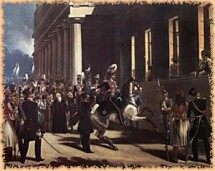
(by Edward Luttwak) (1968)
The only good thing about the film Casino Royale (1967) is the moment when David Niven recalls Lenin as a ‘first-class organiser…second rate mind.’ This cool, matter-of-fact, revolutionary, cookbook for a coup is rather the reverse of that characterisation. It’s a impressive assembly of material, from necessary pre-conditions, to the strategic and tactical aspects of coups d’état, sprinkled with apt historical instances.
A masterpiece of concision, yet where the book meets it margins, we see what Luttwak recognises as the “difficulty of predicting human behaviour.” So whilst the book is a worthy Machiavellian guide to the overthrow of established order, in practise it is nothing without that most dangerously human of qualities: zeal. Think Lenin, Castro, Atatürk. We don’t get much sense of that here, inevitably. And Luttwak has very little to say about the winning of hearts and minds post-coup (perhaps a sequel is indicated).
 But it is still a subversively interesting work from a fairly contentious and always interesting scholar and geopolitical analyst (we note reports of his current involvement in the high-tech hunt for the Roman loot of Alaric’s horde in Calabria, buried circa 410AD).
But it is still a subversively interesting work from a fairly contentious and always interesting scholar and geopolitical analyst (we note reports of his current involvement in the high-tech hunt for the Roman loot of Alaric’s horde in Calabria, buried circa 410AD).
Continue Reading →
Il Trovatore

(Giuseppe Verdi) (1853) (The Met, October 2015)
The story of this opera can be summed-up in this little ditty:
“Yes, Sir, that’s my baby,
No Sir, I do mean maybe,
Yes Sir, baby’s on the stove.
What, Sir, why say ‘maybe’?
Well, see, ‘cos that baby
May be from another trove.”
(With apologies to Gus Kahn and Walter Donaldson)
Sorry to trivialise Verdi’s lovely opera with the doggerel written above, but the plot of Il Trovatore, such as it is, is quite ridiculous. A gypsy hurls her own tot on the bonfire by mistake and closes the circle in conning a lascivious Duke to behead his little brother, whom she’s adopted (a soldier-rebel doubling as a troubadour), dooming herself in the process. Dopey, and what’s more, the back-story necessitates much dull exposition at the start, which means the whole shebang takes time to get going.
But who cares? The score is a dream and if the four lead roles are taken by first-class performers, it is a great night out at the opera. The Met’s production, well-filmed as usual by Gary Halvarson, has the David McVicar staging (rather stark, dark brown), and Marco Armiliato splendid with the baton.
Whilst Yonghoon Lee (as Manrico) rather obviously could not be the biological son of Azucena (Dolora Zajick), they were both in fine form, Lee in particular dealing with some very tricky moments. Anna Netrebko as Leonora was glorious, almost getting us to ignore the fact that, rather than attempt to climb the fortress gate, she could have walked around the corner of the incomplete wall.
But Dimitri Hvorostrovsky stole the show as nasty Count Di Luna. He has the very intense and grim Russian visage, of course, but his impressive baritone rang-out with great intensity, as he spent the entire show being spurned, knifed, and double-crossed. At curtain, he got a standing ovation that was not only richly deserved but poignant, since he is struggling with a brain tumour.*
So, it’s 4 out of 5 for the troubadour.
[*Vale Dimitri (22 November 2017)] Continue Reading →
